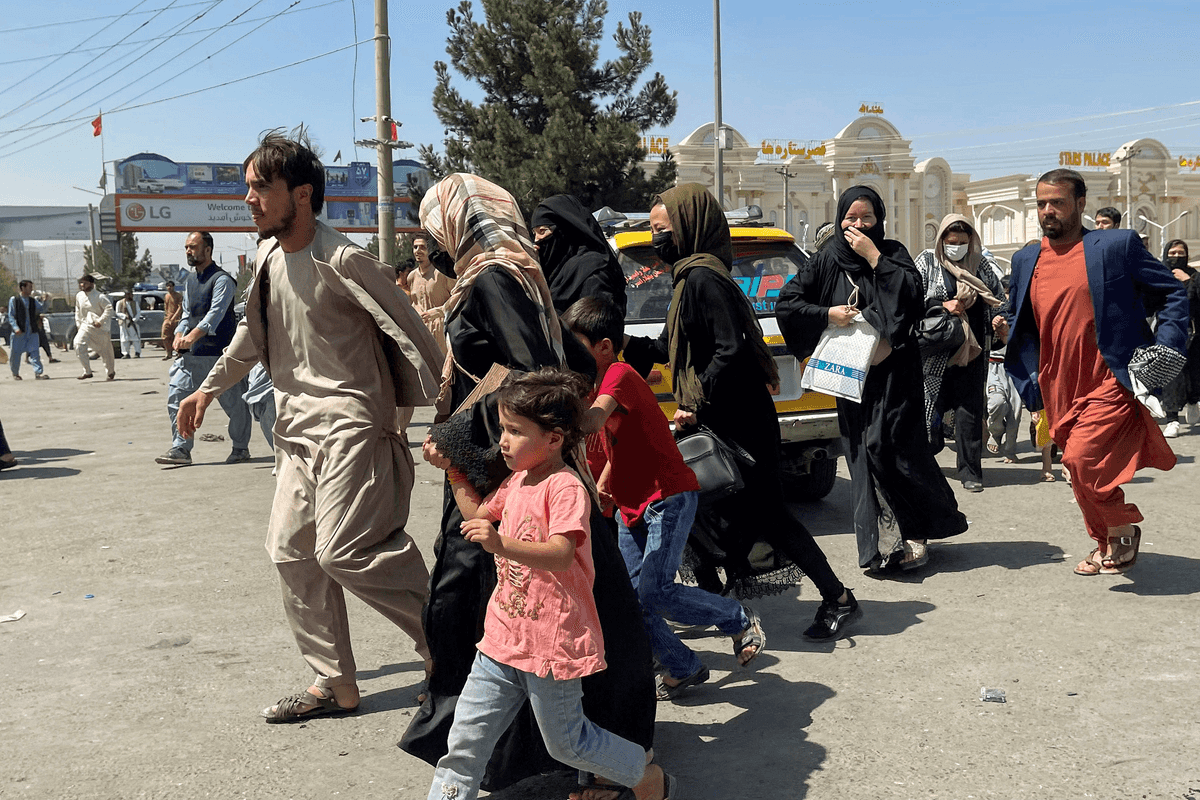‘Trapped in a nightmare’: Afghans promised safety in Germany left stranded in Pakistan
A lifeline after the 2021 US withdrawal has since collapsed into delays and broken trust, leaving families in limbo

Asma Kundi
Producer, Islamabad
Asma Kundi is a multimedia broadcast journalist with an experience of almost 15 years. Served national and international media industry as reporter, producer and news editor.

Stranded Afghans have filed petitions in the Supreme Court to push Germany to meet its commitments.
For more than three years, thousands of Afghans who once supported Western missions have been stranded in Pakistan, waiting for Germany to fulfill its promise of relocation.
What began as a humanitarian lifeline after the 2021 U.S. withdrawal from Afghanistan has devolved into a saga of delays, political wrangling, and broken trust - leaving families trapped in uncertainty and fear.
The endless wait has broken Ahmad Hassan* (name changed), a 38-year-old Afghan journalist who once risked his life reporting on human rights for an international newspaper. Since fleeing Kabul, he and his family - his elderly parents, wife Noor*, and two young children - have been living in Islamabad under Germany’s relocation program.
First housed in a guest house in the city’s F-7 sector and later moved to F-10, their expenses are covered by Berlin. But financial aid has done little to ease the mental toll of indefinite waiting. “We’re trapped in a nightmare of waiting,” Hassan told Nukta.
“My children ask when we can start a real life, my parents’ spirits fade with each silent day, and I’m haunted by the constant fear of losing everything we escaped from in Afghanistan.”
Hassan’s plight mirrors that of nearly 2,700 other Afghans who were promised safe passage to Germany but remain in limbo. The program has stalled amid shifting politics in Berlin and a corruption scandal that cast doubt on the integrity of the vetting process.
For Hassan, the risk is no longer confined to Afghanistan. In Pakistan, where authorities frequently detain Afghans despite their special identity cards, he faces new threats.
“We’ve endured interrogations and the terror of possible deportation,” Noor said, her voice heavy with exhaustion. “We’re not just waiting for a flight; we’re fighting to hold onto hope itself.”
Political shifts and a corruption scandal
A humanitarian crisis is quietly unfolding in Pakistan, where these 2,700 German-sponsored Afghans remain caught between bureaucratic deadlock and political backlash. Like several Western states, Germany had launched a relocation program in 2021 to resettle Afghans who worked with its government, NGOs, and human rights initiatives.
From the roughly 25,000-30,000 Afghans who made it to Pakistan, Germany has relocated about 16,000. But another 2,500–2,700 remain stranded in guest houses and hotels under Germany’s Afghan Education Program.
All carry special ID cards and have waited more than three years, but their cases stalled as Germany’s political landscape shifted. The rise of far-right parties and growing anti-migrant sentiment hardened Berlin’s stance after the February 2025 snap elections, with ministers openly opposing further Afghan admissions.
“Germany’s evacuation program for Afghans who assisted its mission has run into serious trouble,” a senior diplomatic source told Nukta. “The process was further discredited after an NGO, tasked with shortlisting evacuees, was accused of corruption and adding ineligible names — including some suspected of Taliban links. This scandal, now under German intelligence probe, has shaken trust in the program and left genuine applicants stranded.”
In Pakistan, the consequences have been stark. Authorities see the prolonged presence of German-sponsored Afghans as a security concern, and police often detain them, unable to distinguish them from undocumented migrants. In one instance, an Afghan with a valid visa and confirmed flight was detained until urgent diplomatic pressure secured his release. Such cases have frustrated Islamabad, which has already cleared these individuals but is still waiting for Germany to provide relocation timelines.
Growing frustration in Pakistan
The issue has now spilled into Pakistan’s courts. Stranded Afghans have filed petitions in the Supreme Court to push Germany to meet its commitments. On August 27, 2025, the two foreign ministers discussed a Joint Declaration of Intent to resolve the crisis, but detentions persist. Only days ago, eight German-sponsored Afghans were picked up, with some released from Rawalpindi’s Haji Camp at the last moment to prevent deportation.
Sardar Masood Khan, former Ambassador to the U.S. and U.N., told Nukta that Pakistan had been asked to facilitate relocations by several Western allies following the U.S. and ISAF withdrawal in August 2021. While some movements were swift, larger groups got stuck in bureaucratic limbo.
“Stranded refugees and their families are traumatized because they are in ‘no man’s land’. They are in limbo for no fault of theirs. They must be relocated without further delay. This is a humanitarian imperative,” he said.
He acknowledged Germany’s positive record of hosting refugees, particularly Syrians, but stressed the delays in Afghan resettlement were inordinate.
“The fate of the large number of refugees destined to go to Germany is hanging in the balance. In the past, if some unqualified applicants have slipped through the system, the visa processing regime should be refined. But the burden of Afghanistan should not be displaced to Pakistan because we already have more than three million refugees - documented or undocumented - and Pakistan cannot absorb the influx of stranded Afghans. I am sure the relevant ministries of the government of Pakistan are working directly with Germany and other countries to find a modus vivendi.”
Former foreign secretary Johar Saleem echoed the concern, urging Berlin to fix the process. “The delays in the relocation program must be addressed on a priority basis,” he told Nukta. “Prolonged uncertainty is worsening the plight of stranded Afghans. Loopholes in vetting and coordination should be plugged without further delay to restore credibility and ensure timely resettlement.”
As Germany wrestles with political pressures and Pakistan grapples with its own security anxieties, the lives of these Afghans hang in the balance. Their limbo highlights not only the fragility of international humanitarian commitments but also the high human cost of political hesitation.







Comments
See what people are discussing